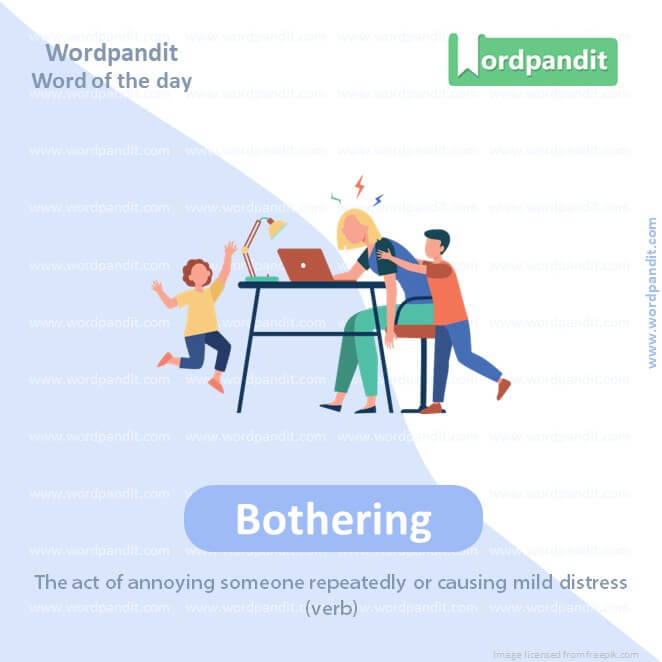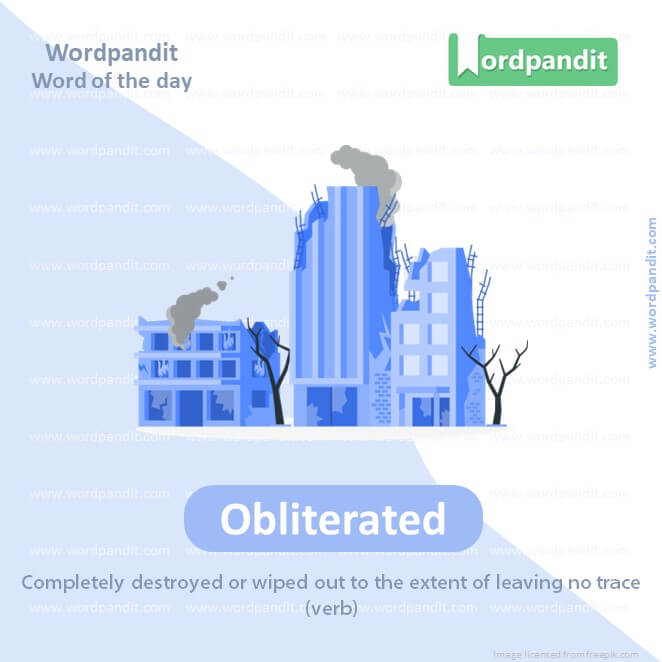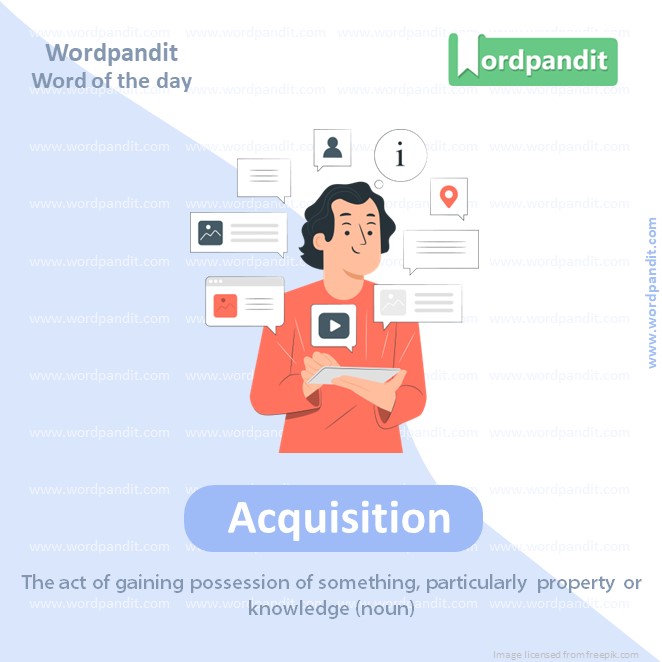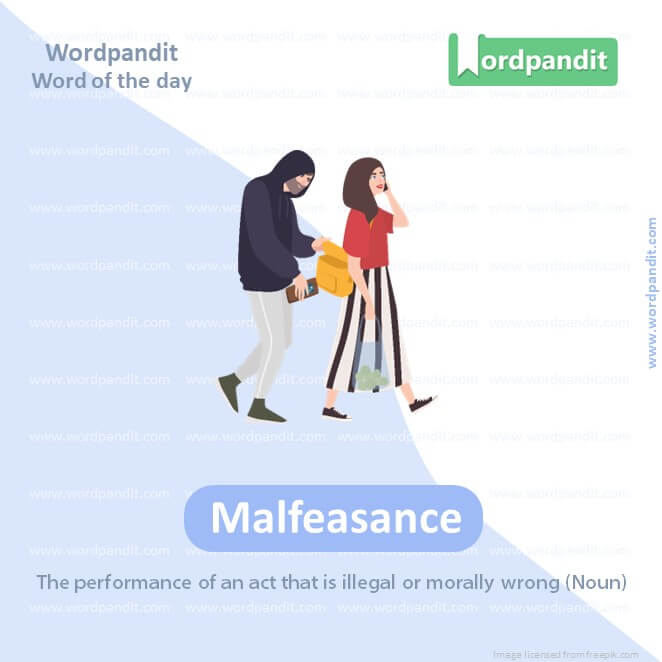Daily Vocabulary Words: List of Daily Used Words in Leading Indian Newspapers
Hi there. Welcome to this special section @ Wordpandit. Our endeavour here is straightforward: highlighting daily vocabulary words that you would come across in leading newspapers in the country. We have included the following newspapers in our selection:
• The Times of India
• The Economic Times
• Hindustan Times
• Mint
• Indian Express
We are putting in extensive work to develop your vocabulary. All you have to do is be regular with this section and check out this post daily. This is your repository of commonly used words; essentially, we are posting a list of daily used words. Hence, this has significant practical application as it teaches you words that are commonly used in leading publications mentioned above.
Visit the website daily to learn words from leading Indian newspapers.

WORD-1: Bothering
CONTEXT: In those innocent days, we went ahead without bothering about the noisy news channels and things like social media, fake news and fake videos and deepfakes.
SOURCE: Indian Express
EXPLANATORY PARAGRAPH: Imagine you have a friend who keeps asking you the same question again and again, even after you’ve answered it. It’s like they’re poking you while you’re trying to play or read. That’s called “bothering.” It’s when someone keeps doing something that makes you feel annoyed or a little upset.
MEANING: The act of annoying someone repeatedly or causing mild distress (verb).
PRONUNCIATION: BAH-thuh-ring
SYNONYMS: annoying, pestering, irritating, troubling, disturbing
USAGE EXAMPLES:
1. She was bothering her brother while he was trying to do his homework.
2. He stopped bothering me after I asked him nicely.
3. The buzzing fly kept bothering us during the picnic.
4. She didn’t like her classmates bothering her about her new glasses.

WORD-2: Obliterated
CONTEXT: The Indian Express found that two dozen of the sixth list of BJP candidates were “lateral entrants”. Clearly, the current elections have obliterated the defection stigma.
SOURCE: Indian Express
EXPLANATORY PARAGRAPH: Imagine you have a picture you drew, but you want it to disappear completely. So, you scribble all over it until you can’t see the picture anymore. That’s similar to “obliterated,” which means something is wiped out so well that it’s like it was never there.
MEANING: Completely destroyed or wiped out to the extent of leaving no trace (verb).
PRONUNCIATION: uh-BLIH-tuh-ray-ted
SYNONYMS: destroyed, erased, demolished, annihilated, wiped out
USAGE EXAMPLES:
1. The old building was obliterated to make space for a new park.
2. His name was obliterated from the record books.
3. The powerful storm obliterated the coastal village.
4. Memories of the old playground were obliterated when it was renovated.

WORD-3: Itinerary
CONTEXT: It is less expensive and does not need much preparation. Wherever he goes, he has a road show. Now all others, including Rahul and Priyanka, have made roadshows an essential part of their itinerary.
SOURCE: Indian Express
EXPLANATORY PARAGRAPH: Imagine you have a list of fun places you want to visit during a vacation, like the zoo, the beach, and the ice cream shop, and you’ve planned which day you’ll go to each place. This list is called an “itinerary.” It helps you know where you’re going each day!
MEANING: A detailed plan or route of a journey, including all the stops and
places you will visit (noun).
PRONUNCIATION: eye-TIN-uh-rair-ee
SYNONYMS: schedule, plan, route, agenda, program
USAGE EXAMPLES:
1. They checked their itinerary to see what they were doing next on their trip.
2. Mom printed the vacation itinerary for everyone.
3. His business trip itinerary included meetings in three cities.
4. She kept the travel itinerary handy to avoid missing any activities.
WORD-4: Percolated
CONTEXT: The deep division has percolated to all walks of life. If the retired bureaucrats or judges issue a statement criticising the Centre, a rival group of pro-government groups counter it.
SOURCE: Indian Express
EXPLANATORY PARAGRAPH: Think about when you pour water over the ground and watch it slowly soak in and disappear. This is a bit like “percolated,” but it often means letting water drip through something like coffee, so the water picks up the coffee flavor as it goes through.
MEANING: Filtered gradually through a porous surface or substance (verb).
PRONUNCIATION: PUR-kuh-lay-ted
SYNONYMS: filtered, seeped, dripped, trickled, infused
USAGE EXAMPLES:
1. The coffee percolated slowly in the morning.
2. News of the surprise party percolated through the office.
3. The rain percolated into the soil, providing moisture to the plants.
4. Ideas percolated in his mind before he started writing.
WORD-5: Guzzling
CONTEXT: Tech companies are showing unprecedented interest in nuclear power to feed their electricity-guzzling data centres.
SOURCE: Indian Express
EXPLANATORY PARAGRAPH: Imagine you are really thirsty after playing outside and you drink your juice very fast. When you drink something really fast like that, it’s called “guzzling.”
MEANING: Drink something quickly and in large amounts (verb).
PRONUNCIATION: GUH-zuh-ling
SYNONYMS: chugging, swigging, gulping, slurping, downing
USAGE EXAMPLES:
1. He was guzzling water after the long run.
2. The car was guzzling gas on the long trip.
3. They were guzzling soda during the movie.
4. She guzzled the lemonade on the hot day.

WORD-6: Acquisition
CONTEXT: There was intense debate in Delhi during the 1990s on the formal acquisition of a nuclear arsenal.
SOURCE: Indian Express
EXPLANATORY PARAGRAPH: Think about when you get a new toy or a new book. You didn’t have it before, but now you do because you got it from the store or maybe as a gift. That new thing you got is called an “acquisition.”
MEANING: The act of gaining possession of something, particularly property or
knowledge (noun).
PRONUNCIATION: ak-wuh-ZISH-un
SYNONYMS: purchase, gain, procurement, addition, obtainment
USAGE EXAMPLES:
1. The library’s latest acquisition is a collection of classic novels.
2. He was proud of his acquisition of rare stamps.
3. The company announced the acquisition of a smaller startup.
4. Her new car was a personal acquisition she had saved up for.
WORD-7: Pencilling
CONTEXT: At the beginning of this year, there were expectations that the US Fed would cut interest rates three times this year, with many pencilling in the first cut in June.
SOURCE: Indian Express
EXPLANATORY PARAGRAPH: Imagine you’re planning to draw a big picture. Before you use your paints, you might use a pencil to sketch out your ideas on paper lightly, so you can change them if you need to. This act of drawing with a pencil first is called “pencilling.”
MEANING: The act of writing or drawing with a pencil, often implying it is not final and subject to change (verb).
PRONUNCIATION: PEN-suh-ling
SYNONYMS: sketching, drafting, outlining, tracing, scribbling
USAGE EXAMPLES:
1. She spent the evening pencilling in ideas for her new book.
2. The artist was pencilling the rough layout for the mural.
3. He pencilled a reminder in his calendar.
4. She was pencilling notes in her journal during the lecture.

WORD-8: Malfeasance
CONTEXT: The political song declined more and more in the later years, it mostly came in bursts and spurts and often from Gulzar. In Hu Tu Tu (1999), his last outing as a director, there was ‘Ghapla Hai’ about government malfeasance and ‘Bandobast hai’ about farmers’ vulnerabilities and their fight for their rights.
SOURCE: Indian Express
EXPLANATORY PARAGRAPH: Imagine if someone, like a leader or a teacher, who is supposed to help and take care of others, does something really bad or dishonest instead. This very wrong action is called “malfeasance.” It’s when someone does something they shouldn’t do because it’s not right.
MEANING: The performance of an act that is illegal or morally wrong (Noun).
PRONUNCIATION: mal-FEE-zuhns
SYNONYMS: misconduct, wrongdoing, corruption, dishonesty, illegality
USAGE EXAMPLES:
1. The mayor was accused of malfeasance in handling city funds.
2. An investigation was launched to look into the alleged malfeasance at the company.
3. He was fired for malfeasance related to the misuse of resources.
4. The public demanded accountability for the malfeasance in office.
WORD-9: Proximities
CONTEXT: City planning documents demarcate distinct facilities at considered proximities from or within a given neighborhood to balance its social and economic requirements.
SOURCE: Indian Express
EXPLANATORY PARAGRAPH: When you’re playing with friends and everyone is close together in the same area, you’re all in “proximities” to each other. It means being near something or someone.
MEANING: The state of being close or near in space or relationship (noun).
PRONUNCIATION: prok-SIM-i-tees
SYNONYMS: closeness, nearness, adjacency, vicinity, immediacy
USAGE EXAMPLES:
1. The proximity of the park to the school made it a popular spot after classes.
2. They chose the hotel for its proximity to the beach.
3. The siblings enjoyed the proximity to each other while living in the same city.
4. The proximity of the two events caused some scheduling conflicts.
WORD-10: Manicured
CONTEXT: Smaller pockets and parcels of intermediate lands that were available for micro public activities are now amassed into larger lands where tall buildings are constructed with clear boundaries that enclose large, green manicured spaces.
SOURCE: Indian Express
EXPLANATORY PARAGRAPH: Imagine having a little garden where you neatly trim the grass, pull out all the weeds, and make sure everything looks perfect and tidy. When you take care of your garden like this, you’ve “manicured” it. This word can also be used for neatly trimmed and cared-for nails.
MEANING: Maintained or groomed neatly and carefully (verb).
PRONUNCIATION: MAN-ih-kyurd
SYNONYMS: trimmed, groomed, neatened, pruned, shaped
USAGE EXAMPLES:
1. The lawns were beautifully manicured.
2. She had her nails manicured at the salon.
3. The golf course is well-manicured and in excellent condition.
4. He always kept his garden manicured, with no leaf out of place.
Vocabulary Pronunciation
The dance of language learning comprises two inseparable partners: vocabulary and pronunciation. The rhythm of this dance is best enjoyed when both partners are in sync. Essentially, mastering ‘vocabulary pronunciation’ is key to expressing and understanding a language effectively. However, what is the ideal approach to learn ‘vocabulary pronunciation’?
Firstly, the process of learning ‘vocabulary pronunciation’ isn’t a sprint. Rather, it’s a marathon where consistency is vital. A gradual and steady pace of learning new words and their pronunciation offers enough time to effectively practice and commit them to memory.
Secondly, to master ‘vocabulary pronunciation’, go beyond written text. Dwell in the world of audible language, such as documentaries, podcasts, music, or language-learning apps that provide pronunciation guides. These memorable auditory experiences aid in refining your ‘vocabulary pronunciation’ and offer a glimpse into the authentic sounds of the language.
Another beneficial strategy for learning ‘vocabulary pronunciation’ involves the use of phonetic transcriptions. They offer systematic approaches to understanding the sound system of a language, thereby improving pronunciation.
Most importantly, do not shy away from practicing your ‘vocabulary pronunciation’. Be it in a language exchange meeting, a conversation with a native speaker, or even a self-recording session, active verbalization massively boosts your pronunciation prowess.
Lastly, always remember to train your ears as much as you train your tongue. Listening carefully to native speakers helps you capture the subtleties of ‘vocabulary pronunciation’, contributing to better delivery when you speak.
In conclusion, mastering ‘vocabulary pronunciation’ is not an overnight journey. It’s a process of intentional practice, sustained listening, conscientious reflection and active usage. As you chart this course with diligence and patience, you will witness your ‘vocabulary pronunciation’ skills blossom, leading you to communicate with greater fluency and confidence.











